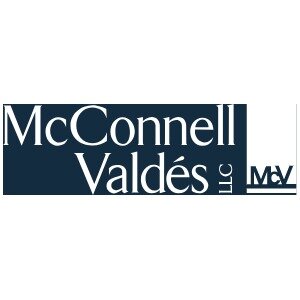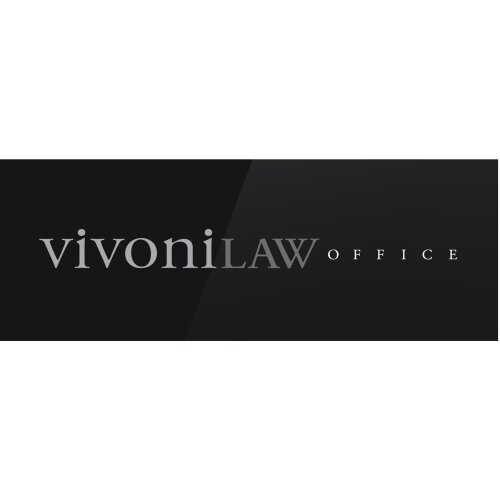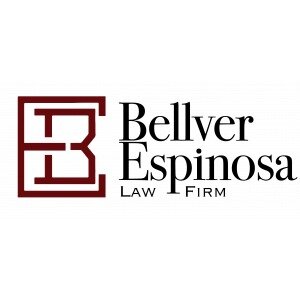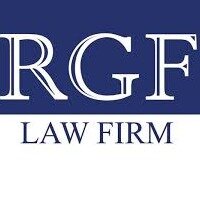Best Public-Private Partnerships (PPP) Lawyers in San Juan
Share your needs with us, get contacted by law firms.
Free. Takes 2 min.
List of the best lawyers in San Juan, Puerto Rico
About Public-Private Partnerships (PPP) Law in San Juan, Puerto Rico
Public-Private Partnerships (PPP) are collaborative agreements between public agencies and private entities aimed at financing, developing, and operating projects that benefit the public, such as infrastructure, transportation, utilities, and public services. In San Juan, Puerto Rico, PPPs have become an essential tool for addressing public needs while leveraging private sector expertise and resources. The regulatory framework for PPPs in San Juan is designed to ensure transparency, fair competition, and effective risk sharing between partners, while prioritizing public interest and sustainable development.
Why You May Need a Lawyer
Engaging in a PPP involves navigating complex legal, contractual, and regulatory challenges. Here are some common situations where legal help is crucial:
- Evaluating and structuring PPP proposals to ensure legal compliance.
- Drafting and negotiating partnership agreements that clearly define roles, responsibilities, and risk allocation.
- Understanding and addressing procurement requirements mandated by Puerto Rican law.
- Managing disputes that may arise during project implementation or operation.
- Protecting intellectual property and proprietary information.
- Ensuring proper regulatory approvals and adherence to local and federal environmental standards.
- Assessing and mitigating potential liabilities or financial risks associated with the partnership.
Local Laws Overview
Puerto Rico has a comprehensive legal framework for PPPs, primarily established by the Public-Private Partnerships Act (Act No. 29 of 2009) and other related statutes and regulations. Key aspects include:
- The Puerto Rico Public-Private Partnerships Authority (P3A) oversees the planning, procurement, and monitoring of PPP projects statewide, including San Juan.
- All PPPs must follow a transparent and competitive selection process regulated by specific procedures to prevent corruption and favoritism.
- The law mandates detailed feasibility studies, public consultation periods, and multiple layers of governmental review before any project is approved.
- Contracts must address risk allocation, performance standards, dispute resolution mechanisms, and termination clauses in line with legal requirements.
- PPPs are subject to state and federal environmental rules, labor regulations, and anti-trust considerations.
Understanding these laws and their implications is essential for both private and public participants in PPP projects in San Juan.
Frequently Asked Questions
What is a Public-Private Partnership (PPP)?
A Public-Private Partnership is a contractual agreement between a public sector body and a private entity to develop infrastructure or deliver a public service. Both parties share resources, risks, and rewards.
Who oversees PPP projects in San Juan, Puerto Rico?
The Puerto Rico Public-Private Partnerships Authority (P3A) is the main government entity responsible for overseeing, regulating, and managing PPP projects throughout Puerto Rico, including San Juan.
What kinds of projects can be developed using PPPs?
PPPs can be used for a wide range of initiatives, including roads, bridges, water treatment plants, hospitals, schools, energy projects, and even some social infrastructure projects.
Are PPP arrangements common in Puerto Rico?
Yes, PPPs have become more common in Puerto Rico in recent years, as the public sector seeks to address infrastructure needs and budgetary challenges by partnering with private investors and operators.
How are PPP proposals selected in San Juan?
Proposals are selected through a competitive, transparent public bidding process. Projects are evaluated based on feasibility, public benefit, financial soundness, and compliance with regulatory requirements.
What are the main risks in a PPP?
Risks can include construction delays, financial issues, regulatory changes, operational problems, and disagreements over contract terms. Properly drafted legal agreements can allocate and manage these risks effectively.
Why involve a lawyer in a PPP project?
A lawyer can help ensure compliance with the complex laws and procedures governing PPPs, draft strong contracts, identify risks, and resolve disputes if they arise.
Can foreign companies participate in PPPs in Puerto Rico?
Yes, foreign companies can participate in PPP projects, but they must comply with local laws, registration requirements, and often partner with local entities.
How long do PPP agreements typically last?
PPP contracts can range from several years to multiple decades, depending on the nature and scale of the project. Long-term agreements are common for large infrastructure assets.
Where can I find information about upcoming PPP opportunities?
The Puerto Rico Public-Private Partnerships Authority routinely publishes information about upcoming projects, procurement processes, and contractual opportunities for interested parties.
Additional Resources
For those seeking more information or assistance regarding PPPs in San Juan, the following resources may be helpful:
- Puerto Rico Public-Private Partnerships Authority (P3A) - The central government body for PPP projects.
- Puerto Rico Department of Economic Development and Commerce.
- San Juan City Government Economic Development Office.
- Local chambers of commerce and professional associations specializing in infrastructure and law.
- Legal aid organizations with expertise in business and governmental contracts.
Next Steps
If you are considering participating in a PPP or have concerns about your rights and obligations under an existing agreement in San Juan, consider taking the following actions:
- Consult with a lawyer experienced in PPP law and local Puerto Rican regulations. Seek references or professional listings to identify qualified counsel.
- Gather all documents related to the prospective or ongoing PPP project, including contracts, correspondence, financial analyses, and regulatory filings.
- Arrange an initial consultation to discuss your situation and assess your options.
- Stay informed about legal and regulatory updates from the Puerto Rico Public-Private Partnerships Authority.
- Document any concerns or issues as they arise and communicate proactively with all project stakeholders.
Professional legal guidance is critical to navigating the complexities of Public-Private Partnerships in San Juan, Puerto Rico and achieving successful project outcomes.
Lawzana helps you find the best lawyers and law firms in San Juan through a curated and pre-screened list of qualified legal professionals. Our platform offers rankings and detailed profiles of attorneys and law firms, allowing you to compare based on practice areas, including Public-Private Partnerships (PPP), experience, and client feedback.
Each profile includes a description of the firm's areas of practice, client reviews, team members and partners, year of establishment, spoken languages, office locations, contact information, social media presence, and any published articles or resources. Most firms on our platform speak English and are experienced in both local and international legal matters.
Get a quote from top-rated law firms in San Juan, Puerto Rico — quickly, securely, and without unnecessary hassle.
Disclaimer:
The information provided on this page is for general informational purposes only and does not constitute legal advice. While we strive to ensure the accuracy and relevance of the content, legal information may change over time, and interpretations of the law can vary. You should always consult with a qualified legal professional for advice specific to your situation.
We disclaim all liability for actions taken or not taken based on the content of this page. If you believe any information is incorrect or outdated, please contact us, and we will review and update it where appropriate.













